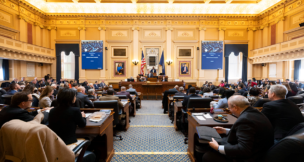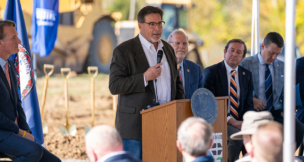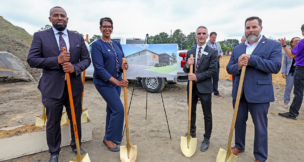Roanoke/New River Valley Big Deal: Banking on Roanoke
When Roanoke County economic development officials pitched Wells Fargo on expanding its customer support center operation in the county, they emphasized how well they’d taken care of the nation’s fourth-largest bank previously and how they would continue to do so. The pitch worked. Now the bank’s $87 million expansion will be the largest commercial office […]
EarthLink support center approaches completion
By mid-August, construction workers had gotten up a big portion of the steel framework for the 28,000-square-foot, two-story building that will house EarthLink’s customer support center at Project Intersection, a new business and industrial park in Norton. Employees of the Atlanta-based high-speed internet service provider should be able to move into the building by March […]












